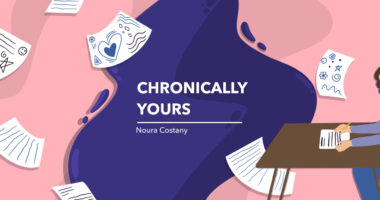‘Hidden’ steroid in supplement cause of woman’s Cushing’s syndrome
59-year-old using Artri King's glucosamine supplements to ease joint pain

A woman developed Cushing syndrome after four months of taking supplements that contained a steroid, which she was not aware of because the supplement did not mention it on its label, according to a case report.
“This case highlights the importance of educating patients to exercise caution when purchasing health products both online and abroad. Consumers should be aware of the potential risks of taking supplements, especially those advertised as joint pain relief products,” the scientists, at Loyola University Medical Center in Illinois, wrote.
The report, “A patient with a bronchial carcinoid presents with Cushingoid symptoms due to an atypical and potentially dangerous supplement,” was published in the Journal of Clinical and Translational Endocrinology: Case Reports.
Corticosteroids, which mimic cortisol activity, can cause Cushing’s syndrome
Cushing’s syndrome is a broad term referring to abnormally high levels of the stress hormone cortisol, which can cause such Cushing’s symptoms as skin changes and weight gain. Cushing’s disease is a specific form of the syndrome, where high cortisol levels are driven by a tumor in the brain’s pituitary gland.
Often, Cushing’s syndrome occurs as a side effect of medicines called corticosteroids, which work by mimicking the activity of cortisol in the body.
Over the course of about three months, the 59-year-old woman began to experience notable Cushing’s-like symptoms: She rapidly gained about 20 pounds, had shortness of breath and flushing, and swelling in her legs and face.
Tests of cortisol levels showed them to be abnormally low, which particularly can happen in drug-related forms of Cushing’s syndrome, as the body stops making its own cortisol due to high levels supplied by the drug. The woman, however, said she was not taking corticosteroid medications in any form.
More than a decade earlier, a small growth in one of her lungs, called a bronchial carcinoid, was discovered. Scientists initially wondered if this slow-growing and usually benevolent tumor was causing the woman’s symptoms by secreting signaling molecules that trigger cortisol production. Laboratory tests showed that it was not the source.
Woman alerted by FDA to ‘hidden active ingredients’ in Artri King supplement
Shortly before the Cushing’s-like symptoms started, the women began taking Artri King’s glucosamine supplements to relieve joint pain. While going through exams for those symptoms, she received a U.S. Food and Drug Administration (FDA) notice advising that this supplement had been found to contain several drugs, including the corticosteroid dexamethasone, not listed on its label but verified by the agency upon reports of harmful side effects.
“The FDA had received several adverse event reports including liver toxicity and even death associated with such products,” the scientists wrote, noting that several other reports also documented Cushing’s syndrome related to these supplements.
Consumers were warned by the FDA, starting in 2022, to avoid products carrying the name Artri or Ortiga after testing showed they contained “potentially dangerous hidden active drug ingredients” like dexamethasone.
Following this notification, she stopped taking the supplements and her Cushing’s symptoms gradually resolved.
“Many supplements are not regulated by the government and may contain hidden ingredients such as glucocorticoids. In these cases further evaluation of suspected products, medications, and patient serum and urine … may be used to confirm occult glucocorticoid exposure,” the scientists wrote.
“This case report emphasizes the importance of teaching patients to be vigilant and appropriately research their health supplements,” they concluded.







